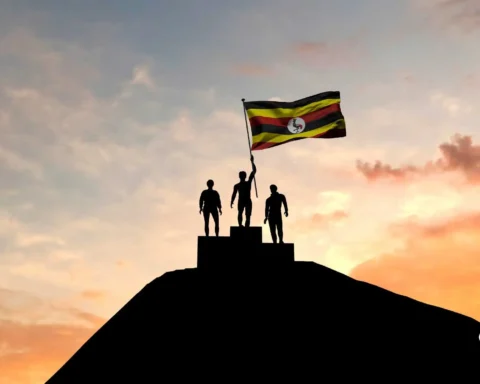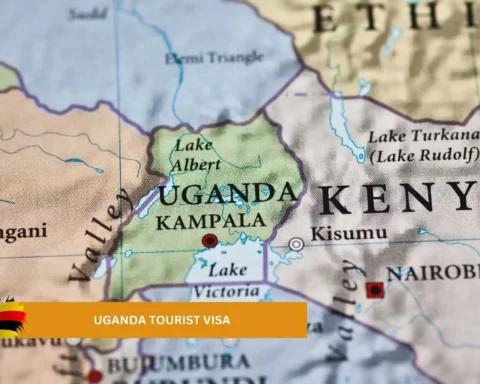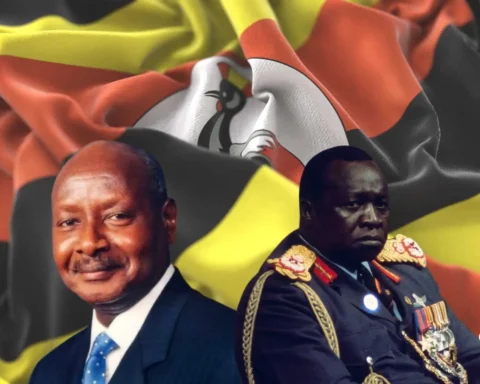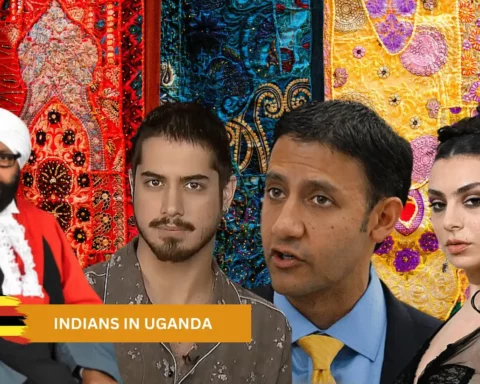Uganda, like many other Sub-Saharan African countries, has been at the centre of debates concerning human rights and sexuality. The country's stance on same-sex relations has garnered international attention, with legal and societal implications. In this article, we delve into the historical, legal, and socio-economic aspects of Uganda's stance on sexuality, particularly focusing on issues such as aggravated homosexuality, the Anti-Homosexuality bill, and the impact of these policies on fundamental rights and poverty.
Table of Contents
Uganda's Historical Perspective on Sexuality
Uganda's stance on sexuality has deep historical roots that shape its contemporary outlook. From pre-colonial views that were relatively accepting of same-sex relations to the influence of colonial-era moral codes, this section explores the evolving landscape of attitudes toward sexuality in Uganda.
Pre-Colonial Views on Homosexual Activities
Uganda's historical perspective on sexuality reflects a complex tapestry of cultural attitudes and practices. In some pre-colonial Ugandan societies, same-sex relations were not uncommon and were often accepted as a part of the social fabric. These practices were rooted in traditional beliefs and norms.
Colonial Legacy: Influence on Current Policies
The colonial period brought significant changes to Uganda's perceptions of sexuality. British colonial authorities introduced their own moral codes and legal frameworks, which were often deeply conservative. This legacy continues to shape Ugandan attitudes towards homosexuality.
Post-Independence Shifts in Attitudes
After gaining independence, Uganda went through various political and social changes, with shifting attitudes towards sexuality. While some LGBTQ+ activists have fought for recognition and rights, the influence of conservative religious leaders has played a significant role in shaping the nation's stance on same-sex relations.
The Anti-Homosexuality Act: A Controversial Legislation
The Anti-Homosexuality Act, enacted in 2014 and colloquially known as the "Kill the Gays" bill, garnered worldwide attention for its extreme features. In this section, we delve into the legislation's details, the international reactions it provoked, and the role played by religious leaders and political capital in its passage.
Overview of the Anti-Homosexuality Act
The Anti-Homosexuality Act, initially introduced in 2013, sought to criminalize homosexuality in Uganda. The legislation proposed life imprisonment for those found guilty of engaging in same-sex relations. This extreme measure generated widespread international condemnation.
International Reactions and Human Rights Violations
The passage of the Anti-Homosexuality Act led to a diplomatic standoff between Uganda and several Western nations, which criticized the law for its violation of human rights, including the rights to privacy and freedom from discrimination. The act also attracted significant attention from human rights organizations such as Human Rights Watch.
The Role of Religious Leaders and Political Capital
Religious leaders in Uganda, particularly some conservative Christian factions, were pivotal in advocating for the Anti-Homosexuality Act. They utilized their political capital and influence to garner support for the legislation, contributing to its passage.
Legal Implications: Aggravated Homosexuality and Life Imprisonment
Understanding the legal implications of Uganda's Anti-Homosexuality Act is vital to comprehend the challenges faced by LGBTQ+ individuals. Here, we explore the concept of aggravated homosexuality, life imprisonment for same-sex relations, and the legal challenges mounted against this draconian law.
Understanding Aggravated Homosexuality
The concept of aggravated homosexuality, as defined by the Anti-Homosexuality Act, includes various acts deemed "unnatural offences." Convictions for aggravated homosexuality could result in life imprisonment. However, the act's definition of these offences remained vague, leading to procedural grounds for legal challenges.
Life Imprisonment for Same-Sex Relations
The most controversial aspect of the Anti-Homosexuality Act was its provision for life imprisonment for consensual same-sex relations. This extreme penalty had severe implications for LGBTQ+ individuals, leading to fear, discrimination, and a stifling of freedoms of expression and association.
Procedural Grounds and Legal Challenges
The Anti-Homosexuality Act faced legal challenges on procedural grounds, including the manner in which it was passed in the Ugandan Parliament. These challenges, coupled with international pressure and human rights advocacy, led to the eventual nullification of the law in 2014.
Impact on Fundamental Rights and Freedoms
The Anti-Homosexuality Act had profound implications for the fundamental rights and freedoms of LGBTQ+ individuals in Uganda. This section delves into the infringement of privacy and sexual orientation rights, as well as the stifling of freedoms of expression and association, all of which resulted from the legislation.
Rights to Privacy and Sexual Orientation
The Anti-Homosexuality Act significantly infringed upon the rights to privacy and sexual orientation. LGBTQ+ individuals in Uganda faced the constant threat of exposure, discrimination, and violence due to the legislation.
Freedoms of Expression and Association
The act also limited the freedoms of expression and association, making it challenging for LGBTQ+ activists to advocate for their rights openly. Many LGBTQ+ organizations had to operate discreetly to avoid persecution.
Human Rights Watch Reports on Uganda
Human Rights Watch has consistently reported on human rights violations in Uganda, particularly those affecting LGBTQ+ communities. Their research and advocacy efforts have played a crucial role in raising awareness of the situation and pressing for change.
Poverty and Sexuality in Uganda
The intersection of poverty and sexuality is critical in Uganda, especially for the LGBTQ+ community. This section examines the economic impact of discrimination, the advocacy efforts led by figures like Asuman Basalirwa, and the ongoing work to address poverty and discrimination within this community.
Economic Impact on the LGBTQ+ Community
The LGBTQ+ community in Uganda has faced economic challenges due to discrimination and exclusion. Many LGBTQ+ individuals have struggled to access education, employment, and healthcare, contributing to higher poverty rates within this community.
Asuman Basalirwa's Advocacy for LGBTQ+ Rights
Asuman Basalirwa, a Ugandan lawyer and politician, has been a vocal advocate for LGBTQ+ rights in the country. His efforts have aimed to address the economic and social inequalities faced by the LGBTQ+ community.
Addressing Poverty and Discrimination
Efforts to address poverty and discrimination among LGBTQ+ individuals in Uganda require legal reforms and societal shifts in attitudes toward sexuality. Advocates continue to work towards creating a more inclusive and equitable society.
Conclusion
In conclusion, Uganda's stance on sexuality, particularly its approach to same-sex relations, has been a contentious topic with far-reaching consequences. By exploring the historical context, the controversial legislation, its legal implications, impacts on fundamental rights, and the intersection with poverty, we comprehensively understand the complex issues at play. Ultimately, fostering inclusivity and equitable treatment for all Ugandans, regardless of their sexual orientation, remains an ongoing challenge and aspiration for the nation.
FAQs
Is homosexuality legal in Uganda today?
No, homosexuality is still illegal in Uganda, and same-sex relations can have severe legal consequences. However, the "Kill the Gays" bill has been nullified.
What is aggravated homosexuality in Uganda?
Aggravated homosexuality in Uganda refers to acts deemed as "unnatural offences" under the Anti-Homosexuality Act, which was previously in effect, resulting in life imprisonment if convicted.
How has international pressure affected Uganda's stance on homosexuality?
International pressure and condemnation have led to legal challenges and the nullification of the Anti-Homosexuality Act. However, societal attitudes remain largely conservative.
Are there efforts to address poverty and discrimination against the LGBTQ+ community in Uganda?
Yes, there are ongoing efforts by activists and organizations to address economic disparities and discrimination faced by the LGBTQ+ community in Uganda, though progress is gradual and challenging.










